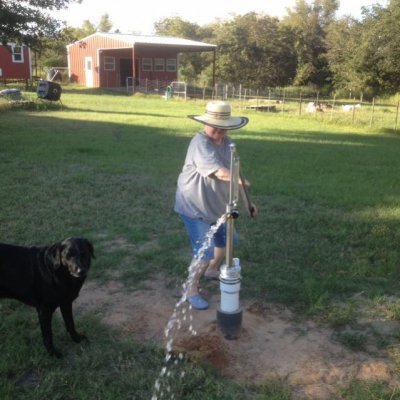Texan-in-Training
Well-Known
A&M tested the water from our emergency "back-up" well and we've got 405 ppm Sodium and 1257 ppm Total Dissolved Salts. Tastes pretty bad.
Was wondering if anyone has any personal experience with a filter system for this? A search on the internet finds solutions, but my concerns are cost and having sufficient replacement cartridges on hand to survive SHTF.
Any kind of "home brew" solutions are welcome too.
By the way, our pumping system was discussed in a "solar pump thread'. We're using the "Simple Pump" brand and pulling water from 180 feet with a hand pump (have their motor adapter on hand for photo-voltaic conversion).
Thanks for any suggestions you might have.

Was wondering if anyone has any personal experience with a filter system for this? A search on the internet finds solutions, but my concerns are cost and having sufficient replacement cartridges on hand to survive SHTF.
Any kind of "home brew" solutions are welcome too.
By the way, our pumping system was discussed in a "solar pump thread'. We're using the "Simple Pump" brand and pulling water from 180 feet with a hand pump (have their motor adapter on hand for photo-voltaic conversion).
Thanks for any suggestions you might have.







